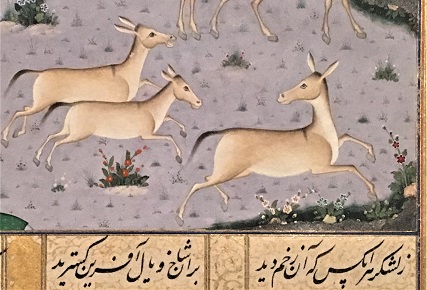For two days, he journeyed off into the desert until he reached a bandits' refuge, where thirty pernicious characters came under the authority of an arch-bandit, and not one city or country district was left unspattered by iniquity at their hands. The blessed Alexander had heard this from many people, and called on God's aid in presenting Him with the souls of these villainous men as tribute.
God knew how good Alexander's intentions were, and granted his request. For when he got together with the arch-bandit, and made known to him the word of faith, the bandit was moved to astonishment and sincere belief, and he accepted and was honored with the grace of holy baptism.
After had risen from the sacred font, the blessed Alexander said to him, "Did you ask for anything, as you went before the sacred font?"
"Yes," he said.
"What did you ask for?" responded Alexander.
To which the bandit: "I asked the Lord to take my life quickly." And he lived for one week longer, repenting of the deeds he had committed, and on the eighth day his Lord took him.
The bandit's thirty men were witness to this incredible marvel, and begged the blessed Alexander that they too might be honored with the gift of Christ. So they went through holy baptism, believing sincerely in our lord Jesus Christ. They were so hot to enter the faith that they converted their robbers' den into a monastery, wherein to stay and serve the Lord with all their hearts. It was not long before God deemed them worthy men, and the blessed Alexander saw their potential in the faith, and their power to build it up in others. He appointed one to serve as abbot (having made sure of the man's amplitude of faith), and bid them farewell, rejoicing and praying for them as he went back on the road.
For two days he journeyed, up to the Euphrates River and across it, a Jacob in spirit. And he found a large storage jar sunk in the earth, and spent his days praying in the wilderness, and by night he would stay in this jar.
From The Life of Alexander the Sleepless (III.24-6)










